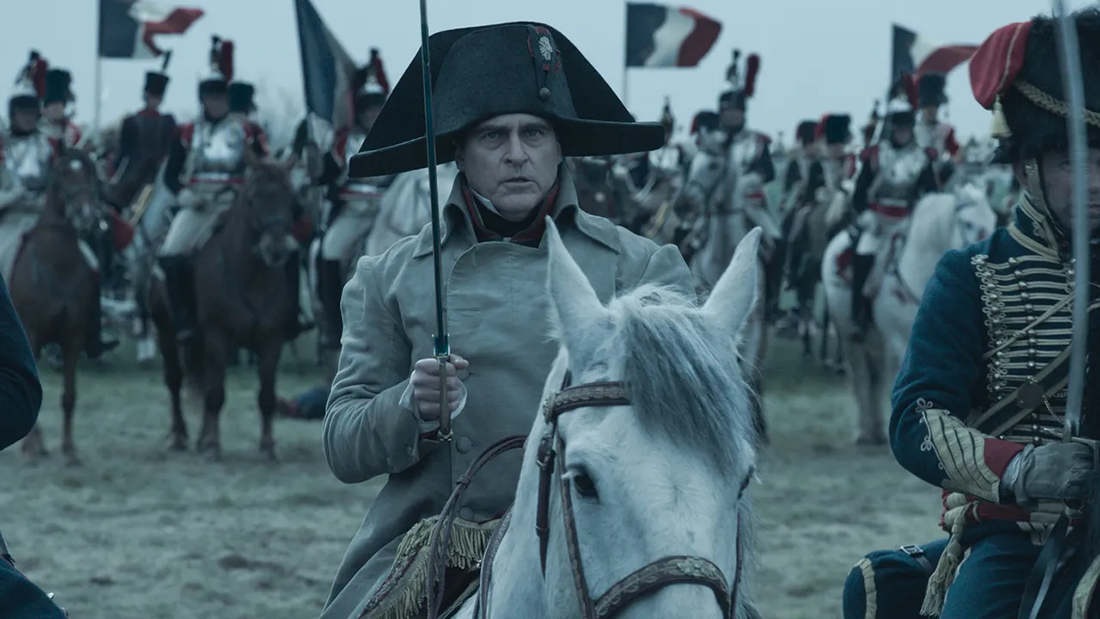
Review: Napoleon – The conqueror
Directed by Ridley Scott
Starring Joaquin Phoenix, Vanessa Kirby
6/10
One of the most well-known military figures in all of history has gotten his own biopic. There have been a few attempts to bring this legend to the screen, and although the one we’ve ended up with here is a decent portrayal, for those wishing to really get to the bone of this man, it leaves a lot to be desired.
Shortly after the execution of Queen Antoinette, Napoleon Bonaparte (Joaquin Phoenix) forces himself up the ranks to claim the Emperor of France title for himself, all the while accompanied by his wife Josephine (Vanessa Kirby). Napoleon commanded eighty-one battles in his time, six of which are presented here.
The film feels laborious because of how drab it is: almost every scene is the same length and has the same pacing, making the film’s structure feel very uniform. Some of them seem to finish prematurely, namely a few of the battle scenes, which appear to have been truncated. There’s little connection between one scene and the other, especially as there can suddenly be large amounts of time elapsed between them, leaving little momentum for the film and its portrayal of Napoleon’s power.
There are two battle sequences that are a little longer and feel more like the centrepieces of the film. They can be exciting, as they are staged and edited well on a technical scale. But a large element that brings the film down is its horrendous look. A great deal of the film has a blue wash covering the image, making it look so drab, depressing, and even underlit. There are some moments early on that show an equally horrendous yellow tint to the image, but it’s this exact blue colour that is most prominent throughout the rest of the film and gives the impression that we’re watching these events through a murky screen rather than being placed right in this exciting time of history.
Napoleon is ultimately a decent portrayal of this legendary man that shows all the main points of his career. But there’s never anything special in the film—no great dissection of the man, and certainly not of anyone around him. Director Ridley Scott has a blockbuster sensibility with every film he makes these days, though it’s also an inhuman and very dry sensibility as well.
As we’ve seen from Oppenheimer, someone like Christopher Nolan would’ve brought more engagement and tension to the character himself. And Stanley Kubrick, who devoted a large amount of research to his own Napoleon biopic (that never got green-lit), would’ve also crafted something far more interesting and introspective. But under Scott, we just get a reasonable, though empty, film about the kind of historical legend that deserves more.
DAVID MORGAN-BROWN
